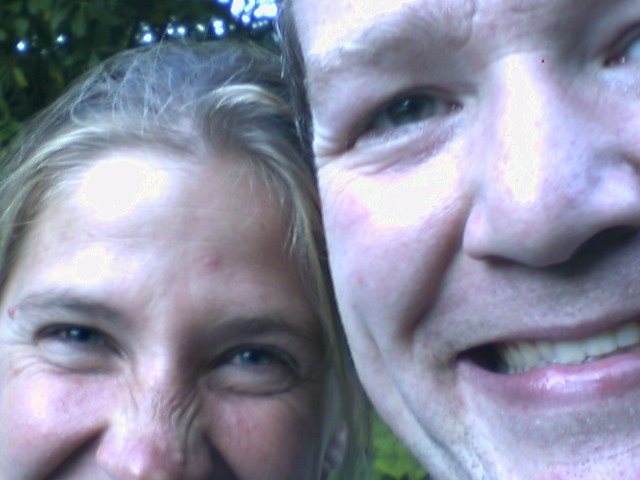"like" is the new "um", and some probability.
Two days ago I was on the UW campus for the first time in quite a while. I was on my bike, and as I was riding past a young lady of about 20 years of age, I heard one word in her conversation via cell phone. The word was "like".
This got me to, like, thinking. I wondered what the probability was that "like" would be the one word I heard when riding past a twenty something young lady having a cell phone conversation.
This is fairly easy to calculate, given the proper information.
First of all we have to know the probability that she'll be talking, rather than, like, listening, for instance. Clearly she *won't* say "like" as I ride past if she isn't talking. This wouldn't really be, like, that hard to figure out. We could just do a nice sample of, like, 30 young woman, randomly picked out, who were on cell phones, and sort of like unobtrusively walk along behind them with like two stopwatches, one of which records the total time they're on the phone, and the other of which records the total time they're like actually talking. Add these figures up for all the women, then divide the total time talking by the total time they are on the phone, and we'd have like a rough estimate of what percentage of the time they are like actually talking while on the phone.
Then we would need to know what percentage of their total talking time is consumed by saying the word "like". This would be slightly more difficult. We'd have to like actually record the women as we followed them, with a little directional mike, and then like go through the recordings to figure out how much of their actual talking time was used saying "like". Divide the time spent saying "like" by the total talking time, and we have like a rough estimate of the percentage of their talking time they spend saying "like".
Now we just multiply the second percentage by the first percentage, and, voila, we have like a rough estimate of the probability that a young women walking along talking on her cell phone will be saying "like" just as we ride past her on our bicycle.
My hypothesis is that it's at least half a percent. Although at this moment I have like a rather bad feeling that I've seriously screwed up that whole calculation thing, and my stats professor would be like seriously disappointed.
"Like", in my opinion, has become the new "um". I wonder if toastmasters counts "like"s nowadays? When I attended toastmasters years ago, someone would be assigned as the wizard of "ah"s, and they would carefully tally the total number of times a speaker would say "ah", "um", and the like during their speech.
This can sometimes be a method for amusing oneself if the speaker is incredibly boring--just keeping count in your head of like how many times they say these types of words. If they almost never do, then you can always count some other word. Many speakers have at least one word that they tend to like over use.


1 comment:
Like is a bit old hat here. Everything is 'well' something. Well good, well hot, well nice, and even the classic well not well.
Post a Comment